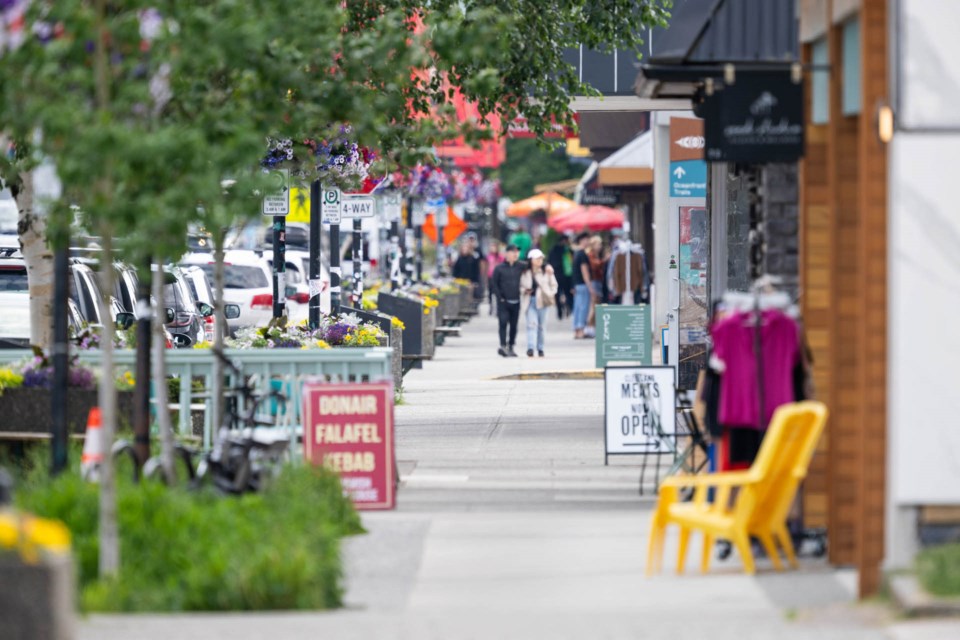Tourism is one of Squamish’s big draws these days, so we should aim to be as tourist-friendly as possible.
Pre-pandemic, about 615,000 visitors came to Squamish for a day visit or stay of one or more nights, according to the 2020 tourism impact study.
Estimated spending by Squamish visitors totalled $95.2 million, or an average of $155 per visitor.
While every community is unique, it can be helpful to look at places that already have some of the qualities we want, as they can help guide us.
If you have ever been to the tourist-friendly community of Fort Langley, it is a lovely little town to visit. It is immensely walkable, with tree-lined streets and plenty of places to stop to cool down in the shade or rest.
Like Squamish, it has funky shops and cafés, but it also seems easier to find parking, even on a Saturday.
There is a paid parking lot that is privately owned and operated. It offers drivers who are willing to pay a chance to snag a very central spot for a few hours or the whole day. Perhaps an idea for here?
There are two-hour parking time limits on roads fronting local businesses that are very strictly enforced using an Automated License Plate Recognition System.
The Township of Langley has increased parking within Fort Langley by providing additional public off-street parking areas that are free to use for longer-term visits. (There’s also a private campground steps from downtown, which likely helps)
The Township has not pursued pay parking to date, as the time-restricted parking is enforced, ensuring turnover in the core, a Langley spokesperson said.
Unlike Squamish, Fort Langley still has a small local population — less than 4,000.
If a booming Squamish wants to be more tourist-friendly, and given that we don’t have public regional transit, we need to make sure that those who bother to make the drive aren’t frustrated trying to explore the downtown core.
Lesley Weeks, executive director of Tourism Squamish, says that downtown parking has been raised as a concern by some of its members.
“We absolutely support more parking, particularly long term — two-plus hours,” she said, adding the organization is also concerned about the lack of recreational vehicle and boat trailer parking.
The board doesn’t currently have an official position on adding pay parking, she said.
“If there was to be paid parking, we would support a portion of it going to the Downtown Business Improvement Association for downtown beautification projects,” Weeks added.
The 2023 Downtown Parking Utilization Study will be presented to council on July 11.
While there are a lot of considerations — active transportation, climate change and the like — hopefully, welcoming the tourists we have come to depend on will also be top of mind.




